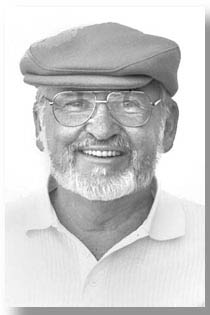There have been many comments about health care cost, present and future, and how it might be paid for. A basic point to remember about most costs is that for one person to pay less, someone, patient or provider, must receive less.
Let’s discuss major exceptions first. While there are many examples of reducing costs in manufacturing and service industries through more efficient operations, machinery, materials or the economies of scale, the human body and its internal functions don’t much lend themselves to manipulation for maximum medical efficiency.
Almost all efficiencies will have to come from making the current health care support system more cost effective. This will require changes in what service is delivered and how it’s delivered.
In the same vein (no pun intended), medical advances tend to increase the patient’s end costs. Automated lab work can reduce costs but this leads to greater use of lab testing to help the doctor make a decision. Or, results might be improved at the expense of a more costly treatment.
From the big picture point of view, reducing end costs under current practices is more a myth than an achievable objective.
Back to how health care costs might be reduced.
The most obvious method is to ration health care. This brings out the cry of a class warfare and would be met as strongly as is the concept of choosing your own doctor. A sacred right.
But is it? Does your present insurance plan allow you to select any doctor no matter his cost? To go to him as often as you’d like? Would the most highly paid and sought after doctor take you for a patient? Could you, like Steve Jobs of Apple, travel to another state to get a transplant?
We already have medical rationing but it’s based on our ability to pay. Let me recite an anecdote. There was an auto repair shop with the sign, “ quality work done quickly, inexpensively --- pick any two”.
Isn’t this how we relate to our medical needs? Except that we want all three. That’s if we’re not in the 47 million who have no insurance.
A quick thought – if health care costs are to be reduced, some way will have to be found to utilize the tens of thousands of Emergency Medical Technicians (EMT’s) working in this country, mostly for fire departments. They could become the staff for a pre-emergency room, a place for medical screening to vastly reduce emergency room costs.
You can come up with many reasons this won’t work, but all someone has to do is come up with one way for it to work.
Enough for this blog. I’ll take it on again in a while. During the interim, think about what health care people of various ages normally require.
Sunday, June 21, 2009
Subscribe to:
Post Comments (Atom)




No comments:
Post a Comment